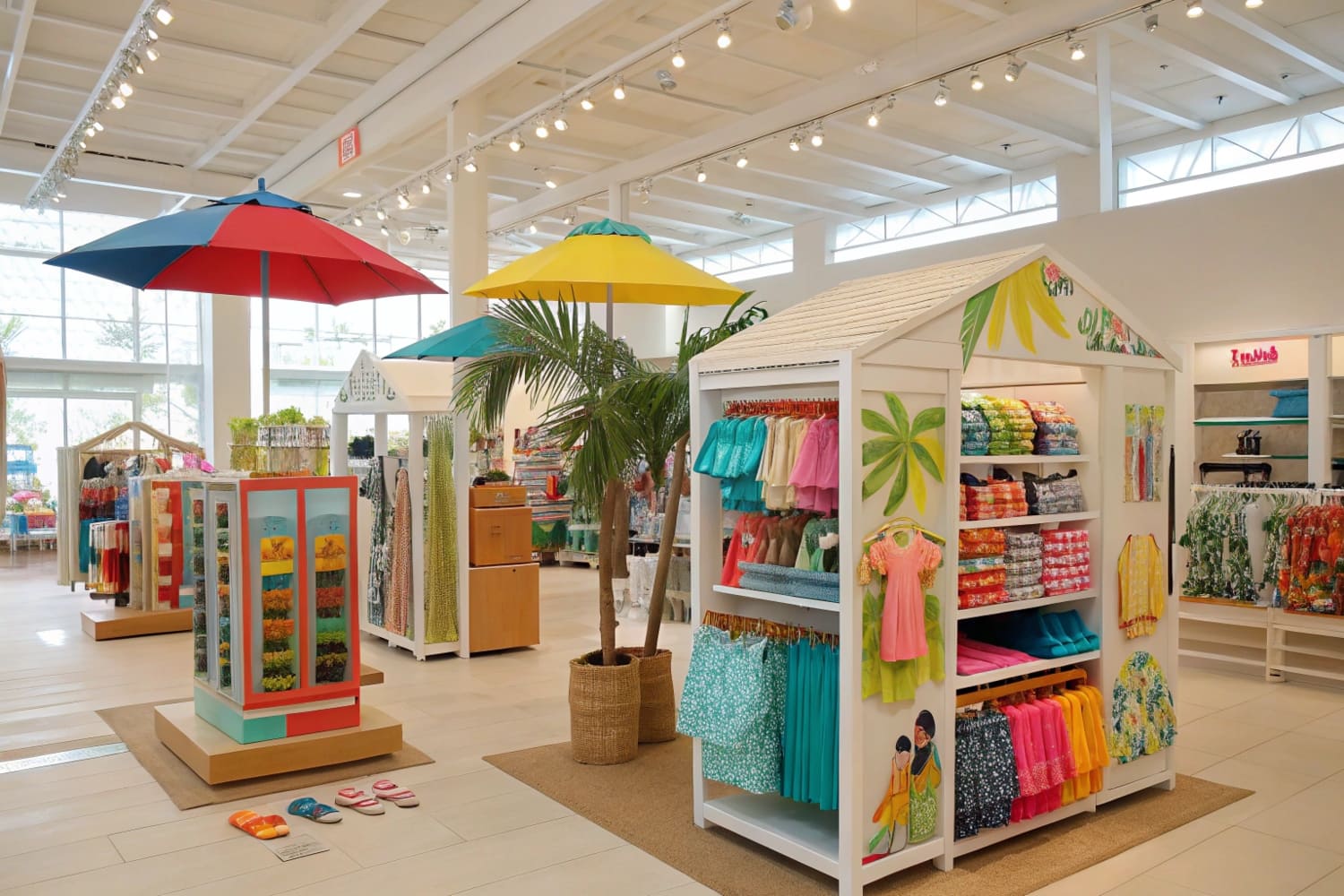Visual merchandising is one of those key components that many businesses overlook, but its impact on sales and brand recognition cannot be underestimated. When done right, it can transform a store’s atmosphere, encourage more purchases, and elevate a brand’s image.
Visual merchandising plays a critical role in enhancing the shopping experience. It influences how customers perceive the brand and its products, ultimately driving sales and brand loyalty.
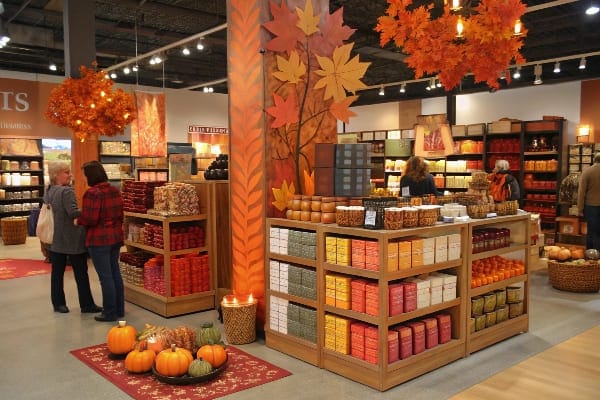
Effective visual merchandising isn’t just about setting up displays; it’s about creating an atmosphere that speaks to the consumer, guiding them towards products that meet their needs. The goal is to make the shopping process easier, more engaging, and memorable, which is why it’s so integral to the retail environment.
What is the importance of visual merchandising?
Visual merchandising is a powerful tool for businesses that want to make a lasting impression on their customers. It not only grabs attention but also communicates the brand’s story. In today’s highly competitive retail space, it’s essential for businesses to stand out and create an experience that resonates with consumers.
The importance of visual merchandising lies in its ability to connect the brand with the consumer. It creates an environment that encourages customers to engage, explore, and ultimately purchase.
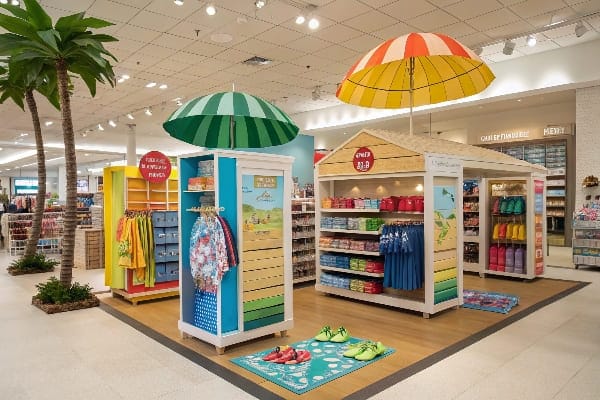
Without good visual merchandising1, even the most impressive products can be overlooked. The layout of a store, the arrangement of products, and the use of lighting, color, and signage all influence a shopper’s decision-making process. Good visual merchandising makes sure that customers are drawn to the right products, which in turn increases sales and brand awareness.
How visual merchandising influences consumer behavior
When consumers walk into a store, they make decisions based on a variety of factors—many of which are influenced by visual merchandising2. The layout and design of a store create an experience that can impact how long customers stay in the store, how many items they pick up, and how likely they are to make a purchase. An organized, attractive display can help guide them toward the products you want to sell, while a poorly designed one can cause confusion and missed opportunities.
The right visual merchandising techniques encourage customers to spend more time in the store and explore different products, which can ultimately boost sales and customer loyalty3.
What are the 3 most important things in visual merchandising?
There are many factors to consider when it comes to visual merchandising, but three elements stand out as particularly important: product placement, lighting, and signage. These components work together to guide the customer’s eye and enhance the shopping experience.
The three most important elements of visual merchandising are: product placement, lighting, and signage. These components work together to create a cohesive, visually appealing experience that attracts customers and drives sales.

By strategically placing products in areas of high visibility4, using lighting to highlight key items5, and ensuring that signage communicates essential information clearly6, businesses can create an environment that maximizes engagement and sales. These elements help direct customers’ attention to specific products, making them more likely to purchase.
Product Placement
Where products are placed in a store is crucial for driving sales. High-demand items should be placed at eye level, while complementary products can be placed nearby to encourage additional purchases. A well-thought-out product placement strategy7 ensures that the most important products are the first to catch the consumer’s eye.
Lighting
Lighting is another critical factor in visual merchandising8. Proper lighting can create a welcoming atmosphere, highlight key products, and even influence the mood of the shopper. Bright, focused lighting can make a product look more attractive, while softer lighting can create a relaxing shopping environment.
Signage
Signage serves as a guide for shoppers, providing them with information about promotions, discounts, or product features. Clear, concise signage can help customers make decisions quickly and without confusion, improving their overall shopping experience.
Why is VM so important?
Visual merchandising (VM) is crucial for creating an experience that is not only visually appealing but also functional. In a world where customers are bombarded with countless options, good VM helps narrow down their choices and lead them to products that meet their needs.
Visual merchandising is important because it helps create a memorable shopping experience that attracts customers, encourages exploration, and ultimately leads to increased sales.
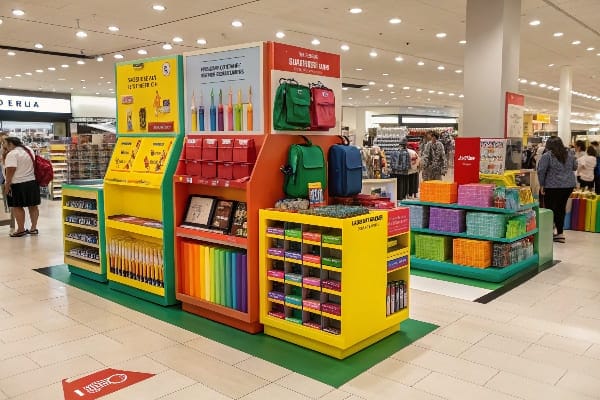
Effective VM doesn’t just involve aesthetics; it’s about creating an atmosphere that makes sense for your customers9. It’s about presenting products in a way that appeals to their senses and interests. A store’s design should reflect the brand’s identity10 and appeal to the target market. Whether it’s a cozy, homey feel for a furniture store or a sleek, modern look for a tech retailer, VM brings the brand to life in the store11.
Creating an Emotional Connection
Good VM can help form an emotional connection12 between the brand and the customer. When customers feel a connection to a brand, they are more likely to return and make future purchases. This connection is built through carefully designed displays that reflect the brand’s values, aesthetic, and customer needs.
Encouraging Impulse Purchases
A well-designed display can also increase impulse buys13. By placing complementary items together or creating eye-catching displays around key products, customers are more likely to purchase additional items they hadn’t initially planned on.
Why is merchandising important?
Merchandising isn’t just about selling products; it’s about creating a system that encourages customers to buy more, stay longer, and build loyalty. A strong merchandising strategy considers not only product placement but also the broader shopping experience. It’s about organizing and presenting products in a way that makes sense for the customer and aligns with the brand’s goals.
Merchandising is crucial because it helps businesses optimize the way they present products, improve customer engagement, and increase sales.
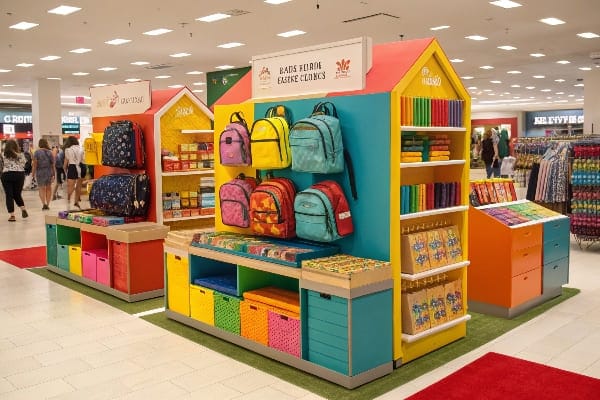
Effective merchandising14 creates an organized, attractive environment15 that encourages consumers to engage with the products. It helps businesses identify and highlight the most popular items, make the shopping experience16 more convenient, and guide consumers toward purchases they might not have initially considered.
Streamlining the Shopping Experience
Good merchandising17 makes shopping easier for customers by organizing products in a way that makes sense. For example, grouping products by category, function, or brand allows customers to find what they are looking for quickly and easily. When products are displayed in an intuitive and logical manner, customers are more likely to make a purchase.
Enhancing Brand Perception
How products are merchandised can have a direct impact on how customers perceive the brand. A well-organized store with high-quality displays creates a positive impression, while a cluttered, disorganized store may cause customers to question the quality of the brand. Effective merchandising helps communicate the brand’s identity, values, and commitment to quality.
Conclusion
In conclusion, visual merchandising is an essential component of a successful retail strategy. It shapes the customer’s experience, drives sales, and helps build brand loyalty.
Understanding visual merchandising can enhance your retail strategy and improve customer engagement, leading to increased sales. ↩
Exploring best practices in visual merchandising can help you enhance customer experience and boost sales effectively. ↩
Learning strategies to enhance customer loyalty can significantly benefit your business in the long run. ↩
Understanding the importance of high visibility can help businesses enhance customer engagement and boost sales effectively. ↩
Exploring the impact of lighting can provide insights into optimizing product displays for increased sales. ↩
Learning about effective signage can improve customer navigation and enhance the shopping experience, leading to higher sales. ↩
Understanding effective product placement strategies can significantly enhance sales and improve customer experience in retail environments. ↩
Exploring best practices in visual merchandising can help retailers create appealing displays that attract customers and boost sales. ↩
Explore this link to discover effective strategies for enhancing customer experience through store atmosphere. ↩
Learn how to align your store’s design with your brand identity for better customer engagement. ↩
This resource will provide insights into how visual merchandising can enhance brand presence in stores. ↩
Explore this resource to learn how brands successfully foster emotional connections, enhancing customer loyalty and engagement. ↩
Discover insights on how strategic displays can boost impulse purchases, driving sales and enhancing customer experience. ↩
Understanding effective merchandising can enhance your retail strategy and boost sales by creating a more engaging shopping environment. ↩
Learn tips and strategies to design a retail space that captivates customers and enhances their shopping experience. ↩
Explore proven methods to elevate the shopping experience, leading to increased customer satisfaction and loyalty. ↩
Understanding good merchandising can enhance your retail strategy and improve customer experience. ↩

